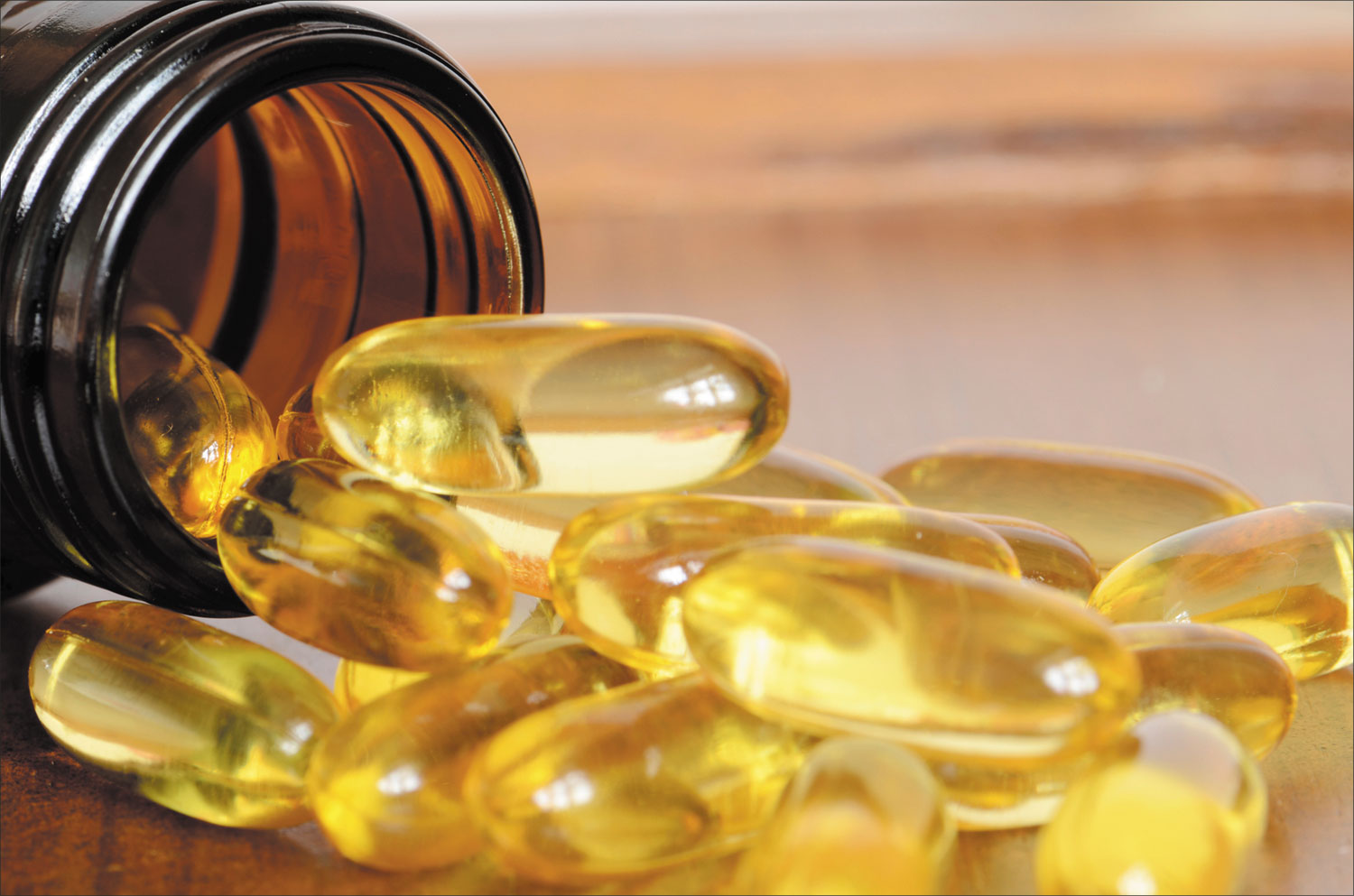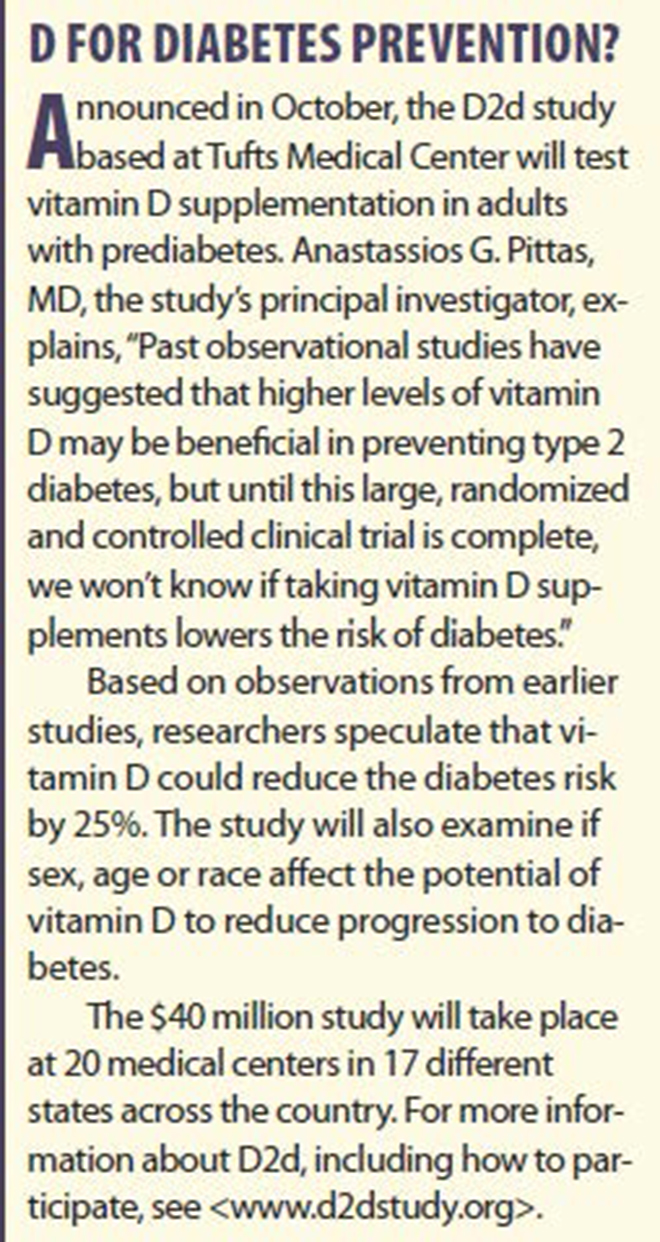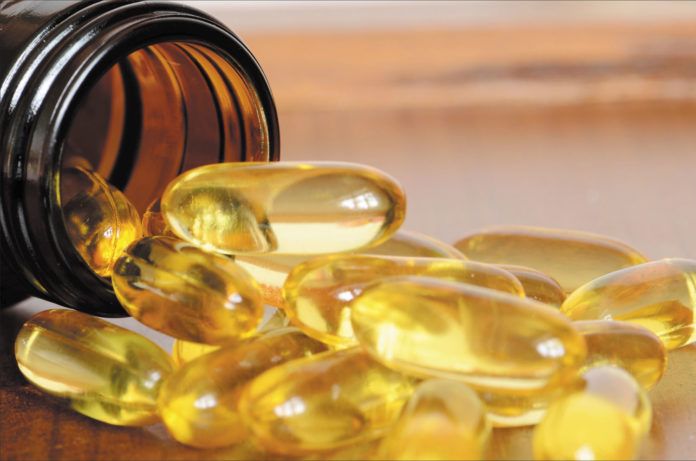If youve been popping vitamin D supplements for benefits beyond bone health-such as preventing heart disease, cancer or diabetes-its too soon to know if those pills are really doing you any good. Thats the lesson, experts say, from a sweeping new review of 290 observational studies and 172 randomized trials of vitamin D, chronic disease and mortality. Although vitamin D deficiency was associated with a variety of health problems in the observational studies, the trials in which participants were actually given extra vitamin D failed to prove a benefit.

This apparent paradox could be because the doses of extra vitamin D tested were too low to make a difference; the largest trial in the review, the Womens Health Initiative, tested supplements of only 400 International Units (IU). Its also possible, however, that vitamin D deficiency is a sign of poor health status, rather than a cause of or contributor to chronic disease.
To me the takeaway is that we dont yet have randomized clinical trial evidence on the scale needed to answer questions about non-skeletal benefits of vitamin D, says Bess Dawson-Hughes, MD, director of Tufts HNRCA Bone Metabolism Laboratory.
SEEING BUT NOT PROVING:In the new review, Philippe Autier, MD, of the International Prevention Research Institute in France, and colleagues found that low blood levels of vitamin D were associated with greater risk of all-cause mortality as well as cardiovascular disease, inflammation, glucose metabolism disorders, infectious diseases, mood disorders and cognitive decline. Participants in observational studies with sufficient vitamin D, on the other hand, were less likely to suffer cardiovascular events, diabetes and colorectal cancer.

But when put to the test in intervention trials of vitamin D supplementation, extra vitamin D failed to reduce the risk of disease occurrence or progression, or to benefit all-cause mortality. The exception was supplementation of 800 IU in a group of older patients, mostly women, which did slightly reduce all-cause mortality.
Publishing their findings in The Lancet Diabetes & Endocrinology, Dr. Autier and colleagues observed, The discrepancy between observational and intervention studies suggests that low 25(OH)D [a measure of vitamin D levels in the blood] is a marker of ill health. Inflammatory processes involved in disease occurrence and clinical course would reduce 25(OH)D, which would explain why low vitamin D status is reported in a wide range of disorders. In elderly people, restoration of vitamin D deficits due to aging and lifestyle changes induced by ill health could explain why low-dose supplementation leads to slight gains in survival.
ANSWERS AHEAD: Tufts Dr. Dawson-Hughes adds, To answer these questions is why the National Institutes of Health (NIH) has funded the large VITAL study at Harvard and the D2d trial in prediabetics being done here at Tufts, among others.
The VITamin D and OmegA-3 TriaL (VITAL), involving 20,000 men and women across the US, will test whether taking daily supplements of vitamin D3 (2,000 IU) or omega-3 fatty acids (1 gram) reduces the risk for developing cancer, heart disease and stroke in people who do not have a prior history of these illnesses. The multiyear Vitamin D and Type 2 Diabetes (D2d) study, based at Tufts Medical Center (see box), will include about 2,500 people. It will investigate whether daily supplements of 4,000 IU of vitamin D3 will prevent or delay type 2 diabetes in adults aged 30 or older with prediabetes.
Until these studies begin to produce more definitive answers, several years from now, the best advice is to follow the Institute of Medicine recommendation of 600 IU of vitamin D daily for people under age 70, 800 IU for ages 70-plus. People at risk of osteoporosis and those who live in northern latitudes with inadequate sunshine to make vitamin D in the skin may want to take a supplement to help protect their bones.
After a careful review, the Institute of Medicine found no evidence of danger from vitamin D intake up to 4,000 IU per day, Dr. Dawson-Hughes says. You wont be hurting yourself.
Whether you will help yourself beyond bone health, however, is a question scientists are working hard to answer.
























